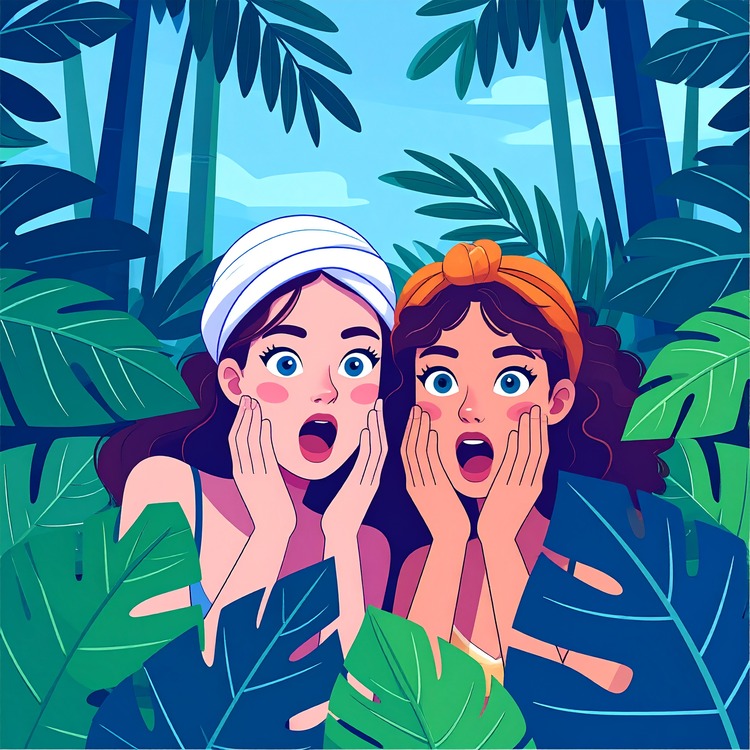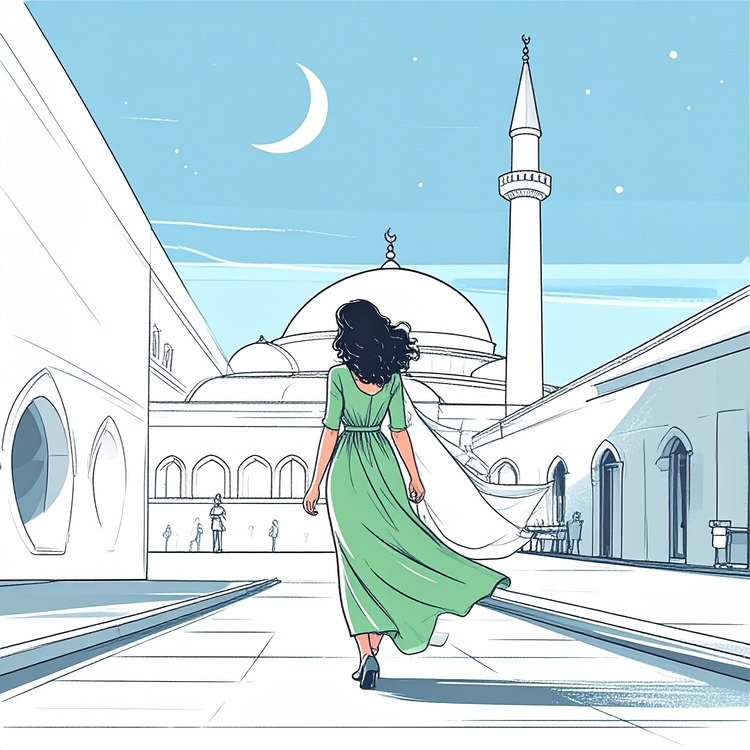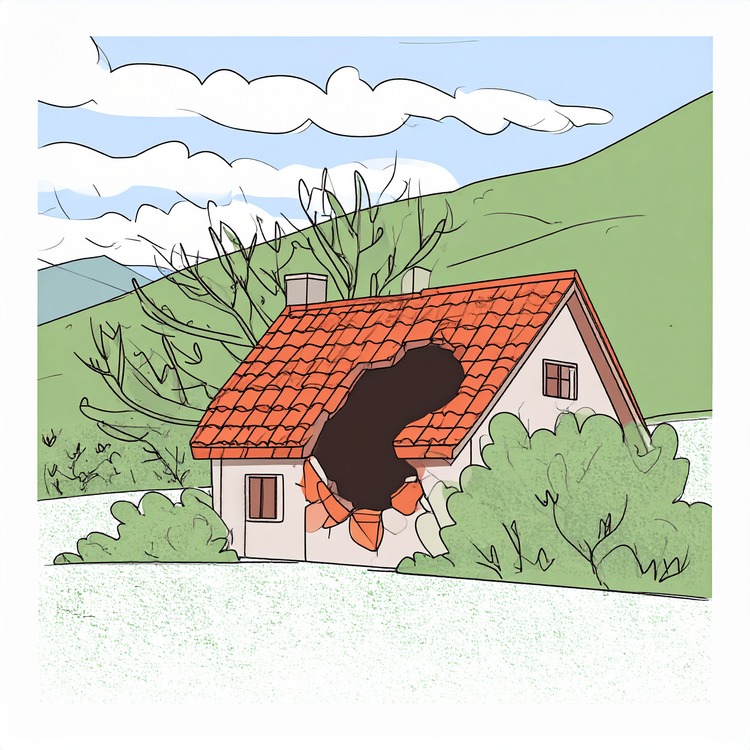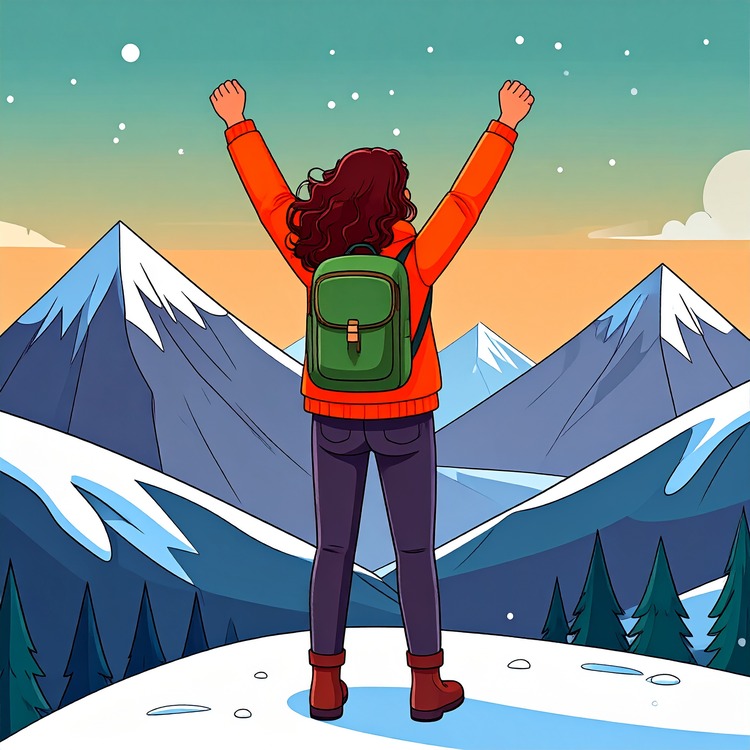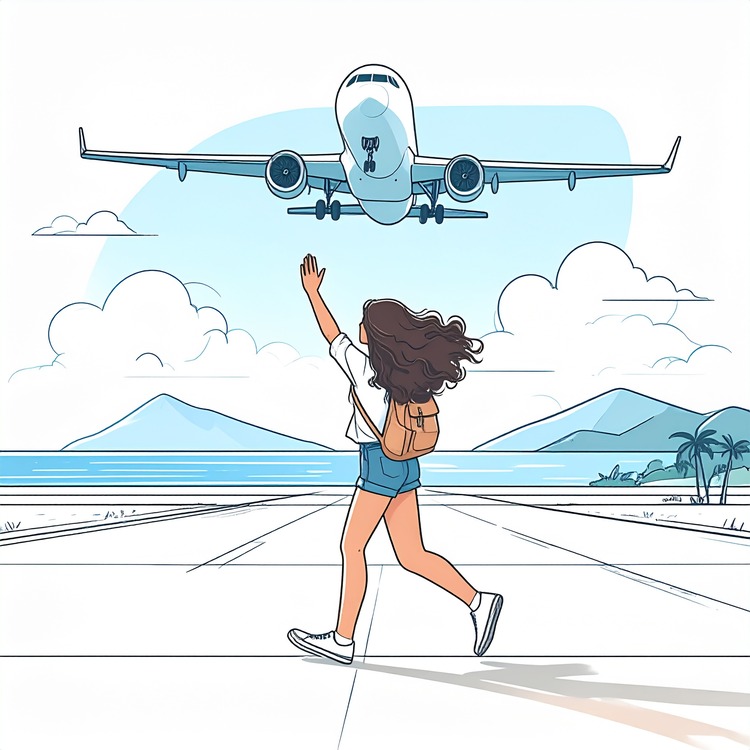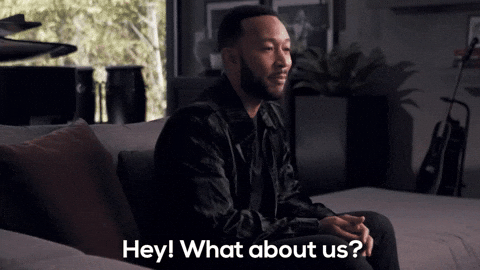I’m 27 years old and have never been robbed.
Until today.
The door of room swings open.
I see three enormous inflatable floats struggling to fit through the entrance.
“Cuqui?”
“Look what I got for our day off!”
I finally see Cuqui’s face as she proudly drops an inflatable mattress and a couple of donuts onto the floor, trophies salvaged from the end of a pool party.
By some divine alignment of stars, spirits, prayers, and the rare synchronization of shift schedules in our respective departments (front office and restaurant), we miraculously have the same day off.
What will we do?
Exactly what you do when you want to enjoy your best friend’s company but have zero desire to plan anything, and you live in paradise.
Beach day.
Three days later
We wake up together, beaming with excitement. We pack our bags with everything we need to stay out until evening, grab our floats, and happily head to the bus stop.
We haven’t decided where to get off yet. As we ride along the curvy cliffside roads, we let the breathtaking view guide us. We pass Barbarons, approach Anse Boileau, and declare the winner: Anse à la Mouche.
A stunning beach, easily accessible from the road. Even too easily…
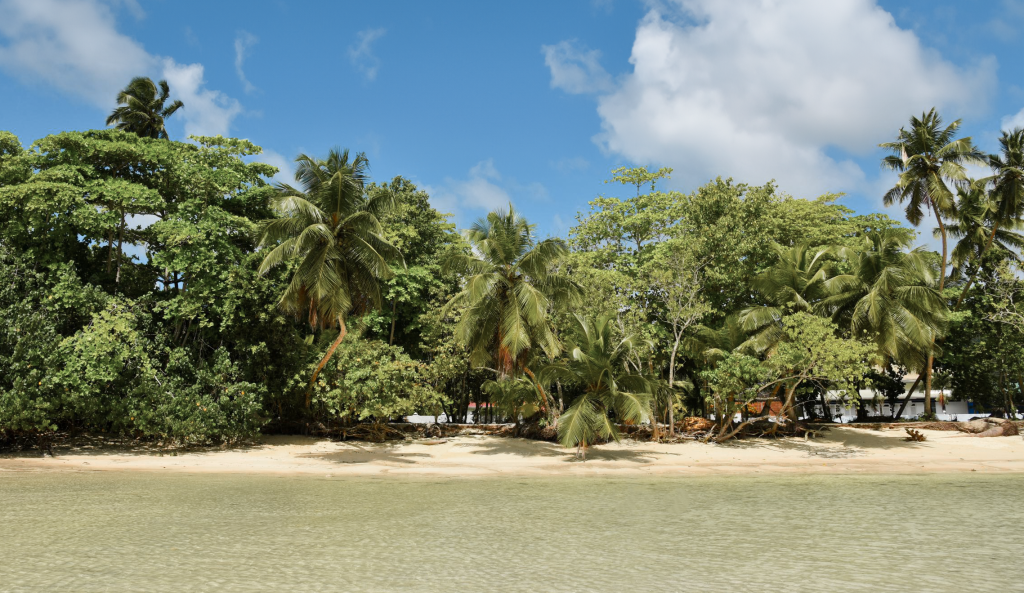
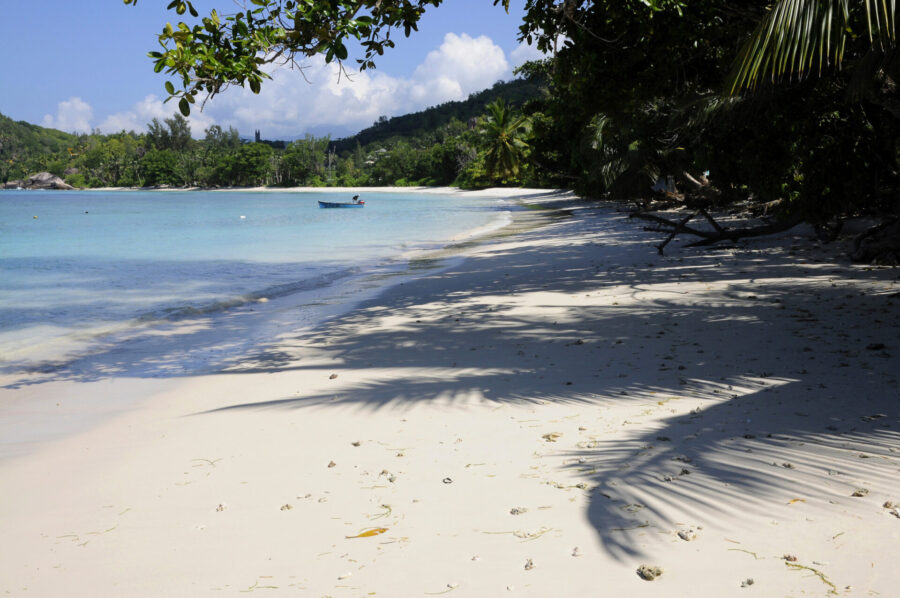
Unlike other beaches that require trekking, climbing, a fourth-level Scouting badge, and the lung capacity of a mountaineer, here, only a hedge and a few trees separate the road from the shore.
We drop our bags there, grab our inflatables, channel our inner Pamela Anderson, and run straight into the water.
Some beaches (my favorite ones) require you to walk quite a distance during low tide before the water even reaches your knees. Anse à la Mouche is one of them.
We wade out until we reach deep enough water to float.
We pause, smile at each other, exchange a look of approval, and collapse onto our floats—heavy on the mattress, but light as two friends about to indulge in a perfect day of relaxation in one of the most idyllic and remote corners of the world.
What a wonderful life.
In unison, we let out a blissful, synchronized “Aaaaaah” as we settle onto our inflatables.
Today, we’re not running around. Today, our legs will stay submerged in the Indian Ocean. Today, we’re not speaking English, we’re not handling crises or complaints.
Today, we’ll only smile if we feel like it.
Today is about peace.
Only the deep, indecipherable sound of the sea in our ears, while the sun caresses the rest of our bodies.
Have I mentioned what a wonderful life this is?
I glance back at our bags and take the opportunity to make a confession.
Until this very moment, I’ve lived under the belief of a couple of universal laws that make the following statements feel true:
- “I don’t steal, so no one will steal from me.”
- “I’m a good person, so I attract only good people.”
I’ll give you a moment to mentally insult me and think of all the good people you know who, unfortunately, could prove the weakness of these statements.
It’s today that I begin to suspect that the laws of reflection, compensation, and attraction are far more complex, profound, and mischievous than I’ve ever interpreted them to be.
Out of the corner of my eye, I spot a guy in a white t-shirt, black afro hair, walking hunched over along the beach. He’s looking at us.
Maybe he’s just strolling by and wondering who the bags belong to, then sees us and figures it out.
Go ahead, take another moment to insult me.
I keep watching him. He doesn’t take his eyes off us, and a tiny doubt creeps into my mind.
Do I finally realize he’s a thief? Not at all.
Maybe he didn’t understand they’re ours.

I start waving my arms as if to say, “Hey, we’re right here, those are our things.”
His response? He speeds up. And I finally (finally!) put two and two together.
— C U Q U I I I I I I I I I I I I I I I I I I I I I
— T H E B A A A A A A A A A A G S
Cuqui, deep in relaxation, was probably dozing off. She jolts awake like someone who just had a mariachi band start playing in their face during deep sleep.
In a split second, she understands what’s happening and starts running. I have just a few seconds’ head start.
The water reaches our knees, and we have several meters to cover before we reach the beach. Too many.
The resistance of the water and the sandy seabed makes it feel like a slow-motion Baywatch scene.

The differences between us and the lifeguard?
- We run toward the shore.
- The goal is to save bags instead of humans (if anything, we’re the ones who might hurt the human—if we ever catch him).
- Our floatation devices aren’t red: one is fuchsia, and the other has a sober watermelon print.
- Cuqui and I both have dark, curly hair.
Other than that, I don’t see any differences.
Out of breath from the sprint, we see the guy hunch over our bags, staring at us with the expression of the Grinch caught red-handed stealing Christmas presents.
We push our lungs and quads to the limit and keep running.
Leaving our bags unattended, something that until today seemed obvious (how else are you supposed to go for a swim?), reveals itself in mere seconds as the stupidest idea we’ve ever had.
I see, crystal clear, the right hand of what looks like the African version of the dark-haired singer from I cugini di campagna transform into a claw, gripping our bag handles with force.
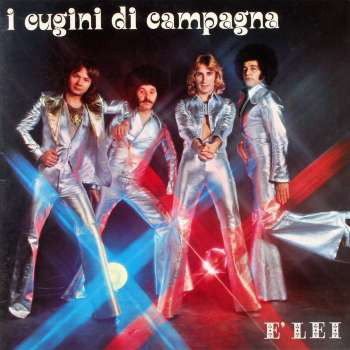
With a jump—both clumsy and sneaky at the same time—he vaults over the hedge. There, his friend is waiting on a scooter, ready to speed away the moment his partner-in-crime hops on.
Cuqui and I reach the beach, our lungs where our tongues should be, and see all that’s left: our flip-flops. He left them because they weren’t in the bags, not out of any concern for us walking barefoot through the jungle and pavement.
Yeah, by now, the bad-faith chip has been forcibly installed in my brain.
We keep running down the road for a bit, but we quickly realize that despite our marathon runner skills (which, to be clear, are inexistent), we’re never going to catch up to a scooter.
We give up on the objective of “recovering the bags” and replace it with “minimizing the damage of the theft.”
Step 1 – Block credit cards
We walk to a restaurant, The Lobster Bay, and notice the worried look on the waiter’s face as he sees two half-naked, breathless girls rushing toward him.
We update him on the situation with what little air we have left and ask for a phone so we can use our last reserves of breath to call the police.
Now, it doesn’t matter what job you have in the Seychelles: in the DNA of anyone who has lived here long enough to consider themselves an islander, the urgency gene has either never been inserted or has been removed.
This is a fantastic trait for learning to live without the stress and chaos of big cities, for de-Milanizing yourself, for shedding the terrible sensation of always being late for something, for enjoying presence in every step, an end in itself rather than just a means to reach a destination.
Less fantastic when the speed of your movements directly influences the resolution of an emergency.
I’m sure there are exceptions, but since I haven’t personally witnessed any, I can neither confirm nor deny my theory.
What I can do is support my argument by observing the police, whose pace of life stands in stark contrast to ours: we’re practically kicking at the ground, ready to start a Fast & Furious-style chase.
We tell the officer on the phone, in a panic, which road the two thieves took. We provide every detail possible. But on the other end of the line, we’re met with someone speaking like Flash from Zootopia.

“The scene? To investigate what? They’re not coming back here! If you go right now to the road we mentioned, there’s a chance you can catch them.”
We’re talking about an island, not a metropolis. Mahé has one circular road that follows the coastline and two main roads that cut across the middle. Simplified, it’s an oval with two lines through it.
With a motorcycle, they’re not going to disappear into the jungle, swinging from vines!
“Wait for us there.”
In the meantime, Cuqui and I cancel our bank cards, but I can’t lock my phone. Having internet would be nice, but it’s not essential. We usually connect to the WiFi when we’re at the resort or our accommodations (which is 80% of the time). I use a local SIM for calls and offline maps to get around. More than enough for island life. I try Find My iPhone just in case, but I already know it won’t work since the phone isn’t connected.
We wait at least half an hour for the police. They don’t show up.
The nearest station is in Anse Boileau, 1.6 km away, and it’s not like there’s any risk of getting stuck in traffic.
Another 40 minutes go by, and still no sign of them. Since giving chase instructions is pointless now, we move on to the next goal, disappointed and resigned.
Step 2 – Find a way home before dark
We’re 15 km from home—not an extreme distance, but without transportation, money, clothes, maps, or a device to contact anyone, surrounded by nothing but roads, ocean, and dense jungle… it’s not exactly close either.
A restaurant customer, a Seychellois who saw the whole thing, kindly offers to drive us partway north to a friend’s house.
The guy from Lobster Bay gives us two restaurant t-shirts to cover up, and we head out.
Step 3 – Lock the phone
A few hours later, a friend picks us up from the halfway point where we got dropped off, and before nightfall, we’re back at our headquarters—the staff area of the resort where we work.
With my computer, I can finally lock my phone, but my keys were in my bag.
Thankfully, my accommodation is shared, so I can count on my roommate’s keys.
Oh, wait. She’s here with me, victim of the same fate, also robbed of her keys.
Rewind. Step 2.5 – Enter our home
We call the maintenance department—the guys with practical solutions who know how to fix (or break into) anything.
“There’s only one guy on shift. Once he’s done with the guest requests, I’ll send him over.”
Side note: In the Seychelles, there aren’t enough houses to accommodate all the hotel staff, so when a resort is built, so are the buildings where they stash the expats, who live inside the complex in a separate area from the luxurious guest accommodations.
Obviously, a guest paying anywhere from €500 to €10,000 a night has priority over the staff whose lodging is included in their contract—even if that staff member is desperate to lock a phone with access to their entire life.
We wait an indefinite amount of time, explaining to our colleagues why, on our day off, we decided to stay in the staff quarters, advertising The Lobster Bay with our butts out.
Eventually, the maintenance guy shows up and asks us to take him where his expertise is needed.
We lead him to our building, climb to the first floor, and stand before the door to our beloved home, presenting it to him.

“And the keys?”
Cuqui and I don’t have the energy to ask him to repeat the question, but he does it anyway.
“Girls, the keys?”
“Excuse me, that is precisely why you are here.”
“And the other roommate?”
I point to Cuqui, and we both answer in unison:
“Napa keys. Bags stolen.”
“And how am I supposed to get in without keys?”
At this moment, the zen part of my soul detaches from my body and starts floating into the ether, leaving my physical form free to curse in peace.
That detached part of me watches the scene from above, like an uninvolved observer, and suddenly, everything seems absurd—almost funny. Like the script of a B-list comedy with terrible actors.
I burst into laughter—until I remember I still have to lock my phone.
Spirit and body reunite, and since I don’t want any more damage than what’s already inevitable, we activate our neurons.
Rewind. Step 2.5 – Enter Breaking into our home
“The balcony! If you have a ladder, we can get in from there. I really don’t think we locked it.”
Actually, even if we had locked it, the windows are the kind with multiple horizontal glass slats that open and close ridiculously easily. No need for a master’s degree in burglary with the directors of Ocean’s Eleven—we could easily slip an arm through the gaps and reach the balcony door handle to open it.
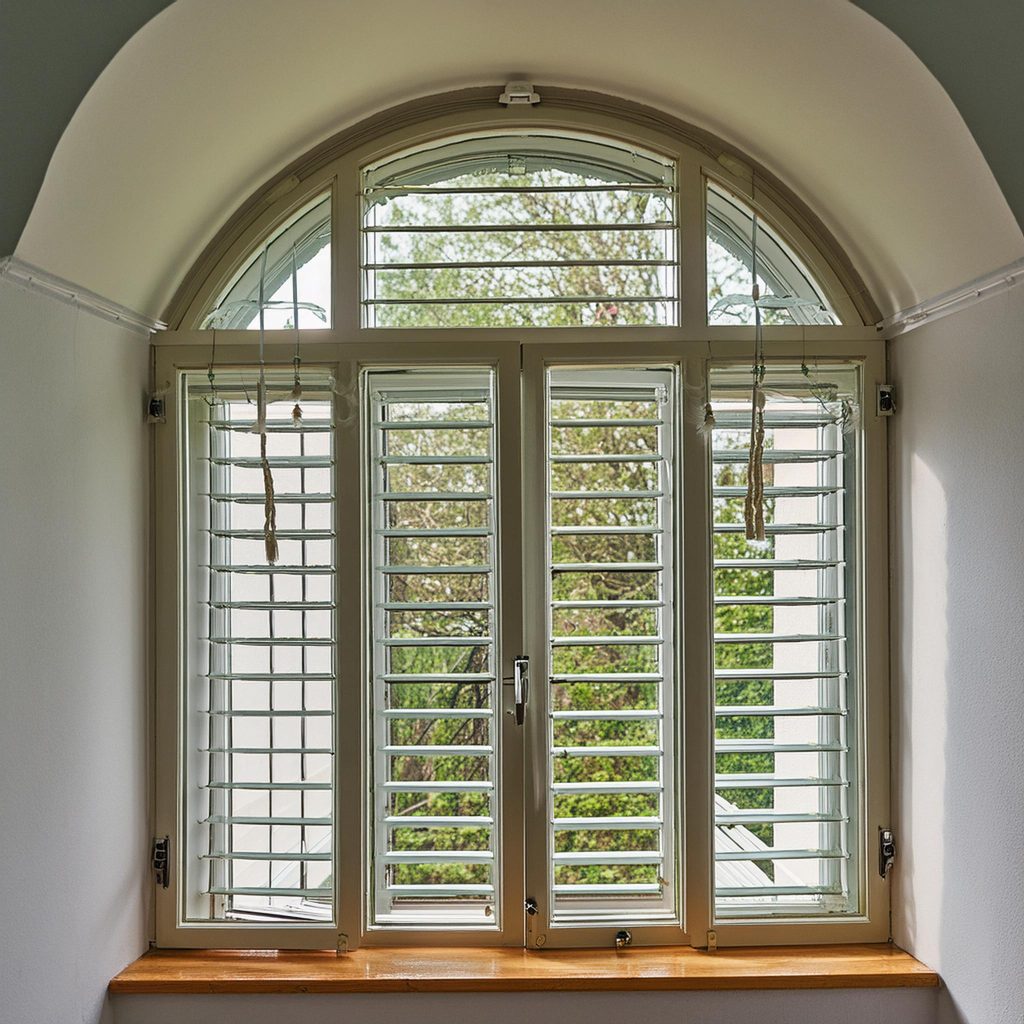
As calmly as possible, the guy comes back with the ladder, we carry out the break-in maneuver, I turn on my computer, and block my phone.
While I’m in full robot mode, thinking of the next steps, the resort’s security guards call us.
“The police are looking for you. What did you do?“
While we were caught up in this circus, the law enforcement officers (who we had completely forgotten about) finally arrived at the restaurant. Not finding us there, they asked where we had gone. The waiter told them where we work, and they called the resort, giving our names.
About time.
Step Bonus – File a report
Cuqui and I go to the police station, with the enthusiasm of people who know they’re wasting precious free hours on a formality that will help us recover our belongings about as effectively as putting up a sign in the park that says: “Desperately seeking lost bags.”
We do what’s required and ask the officer for a copy of the document.
“We don’t have a printer, but you can take a photo with your phone.”

“Didn’t you just type on that computer that our phones were stolen?”
“Oh, right… Okay, we’ll find a way to get it to you at the resort.”
We never saw that document.
Step 4 – Outsource eyesight
The real tragedy of this story begins when I realize the implications of not having my glasses.
For obvious eye health reasons, I don’t start wearing contact lenses for 20 hours a day. So, multiple times, I head to work without the ability to see from a distance.
I’m not completely blind—at worst, I just won’t greet someone who might take offense (but honestly, that happens even when I do have my glasses on and I’m lost in thought, headphones in, head in the clouds).
The real problem are the check-in.
There are two types of guests who arrive at the resort: the very friendly ones and the less so.
By the time I escort them to their rooms in the golf cart we use to get around the 200 square kilometers of greenery, I’ve already made friends and given them all the instructions they need for a great vacation. I even share my direct contact with the nicest ones in case they need assistance, especially if they don’t speak English.
With this type of guest, I shamelessly ask for help.
Before driving into the pathways, I ask them to confirm the villa number they see from the main road, adding: “Sorry, my glasses were stolen on the beach a few days ago, and I can’t read the numbers from here”.
This confession is inevitably followed by the full story, which entertains them enough to make it worthwhile.
With the second type of guest—those who, due to status, personality, exhaustion, or mood, have no interest in small talk—I stay silent. That is great, because instead of bothering them with my voice, I can count the villas in my head, using the easiest landmarks. “We’re in front of the giant tortoise park, so this is block 234-239. Now we’re passing 240-249. Okay, next stop is their villa,” and so on.
No guests were harmed. No giant tortoises were run over.
Step 5 – Buy again what was in the bag

If you’re reading this from the comfort of a city, you might assume that replacing everyday items (phone, glasses, toiletries, clothes, etc.) is annoying but easily resolved with an afternoon of shopping or a few online orders.
Not in the Seychelles.
For starters, Amazon doesn’t deliver here. Neither does most of the internet. The moment you enter the ZIP code, the websites practically laugh in your face. If a store miraculously forgets to disable “remote location delivery,” your order might go through but don’t expect it before three weeks—if you’re lucky.
Shopping is an activity reserved for Victoria, the world’s smallest capital, a metropolis spanning just 9 square kilometers—less than half the size of my hometown—and far enough away to require at least half a day off to get there and run errands.
This means waiting for a day off, arming yourself with optimism, scouring the entire city, and hoping to find what you need.
The more specific you are, the less likely you are to return with anything at all.
And whoever designed Eden Island knows this all too well.
Just off the coast near Victoria is an island with better-stocked stores, connected to Mahe (where I am) by a tiny bridge. Here, all you need is a debit or credit card—and some tissues to dry your tears.
Are the sky-high prices due to the remote location of the archipelago?
Of course, but not only that.
Eden Island is a 40-hectare artificial island built by Dubai. A residential and commercial marina with around 600 luxury homes—apartments, maisons, and villas. It has about 16 private waterways, so every house is practically on the water, with its own private dock.
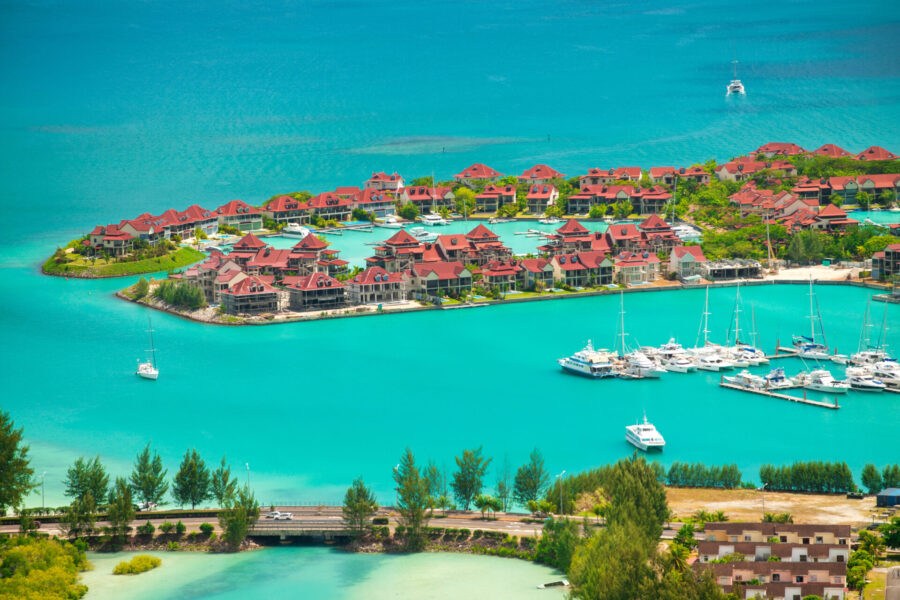

It’s simple. Some people need a garage for their car. Others need space for their yacht.
Naturally, businesses adjust their prices to match the spending power of the usual clientele…
I glance at the tissues in my bag and get on with it.
Epilogue
I remember the first thought I had when we rushed into the restaurant.
Okay, the third thought. Right after “Damn them” and “How stupid of us to leave our bags there”.
Luckily, those two were only interested in our belongings, not in us.
People often say things like “It could’ve been worse,” but all that really does is make you want to tell them to shut up—whether out loud or just in your head. Especially when you’re in the middle of dealing with the consequences of a crisis.
And yet, I can’t help but take it as a gentle nudge from some higher power, whispering:
“Next time you think it’s a good idea to go to a deserted beach, just the two of you… maybe think twice.”
And then decide if going anyway.
I’m not a fan of making decisions based on fear of the worst-case scenario. In fact, you’ll read more stories that suggest I haven’t exactly learned my lesson. But remembering that the world isn’t just full of friendly unicorns doesn’t hurt—it helps to take some extra precautions (without necessarily giving up on the plan itself).

By the same logic, if I decided to barricade myself at home, avoiding all possible adventures, the worst that could happen is something falling on my head and becoming one of the 1.64 million household accident victims each day. Same tragic outcome, except I’d have spent my life with the handbrake on.
Cornuta e mazziata, as they say where I come from. Screwed both ways might be a proper translation?
In any case, shifting my perspective to “it could’ve been worse” kept me calm for the hours that followed, knowing that the main loss was mainly financial—along with the unpleasant feeling that, in an instant, something is here, and the next second, pff, it’s gone.
In the following days, I wished I could rewind to that pivotal moment, imagining myself doing something differently to prevent events from taking the turn they took, sparing myself from the sense of absence I was feeling.
It reminded me of the boy I had fallen for, who had recently set sail in a different direction, bound for nostalgia and oblivion—just like the objects in that bag, which had now found a new place in the world, never to be part of mine again.
